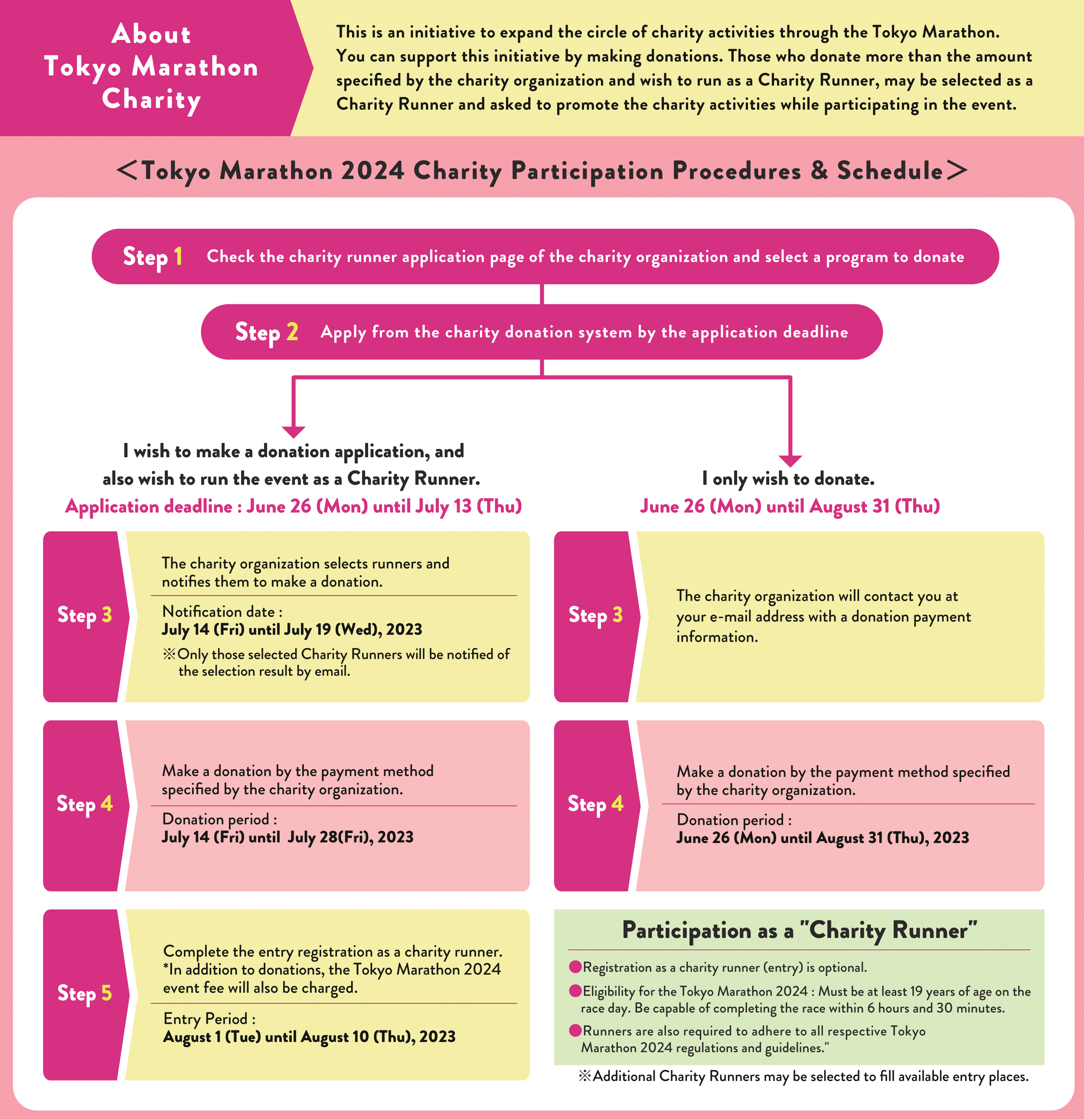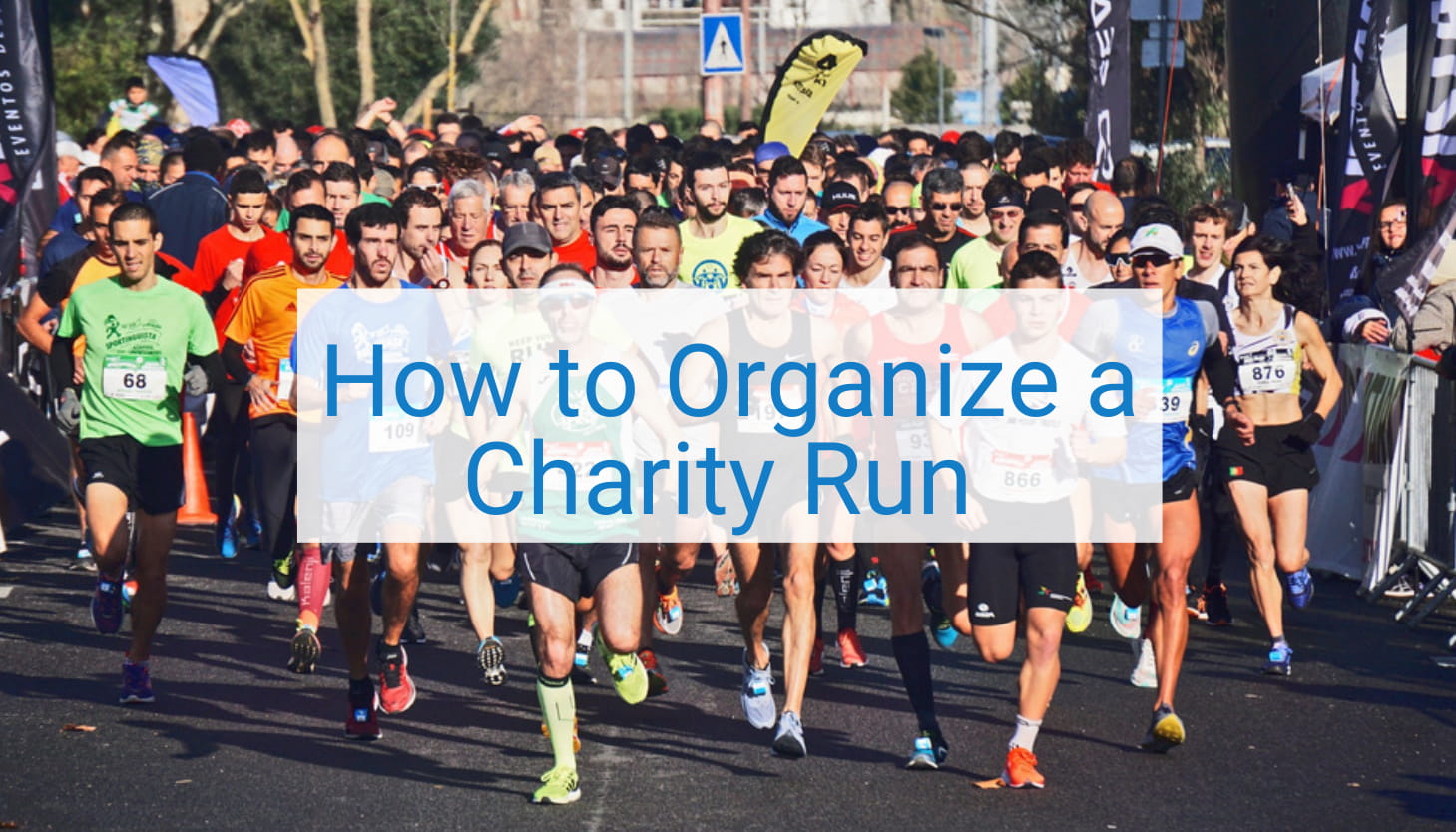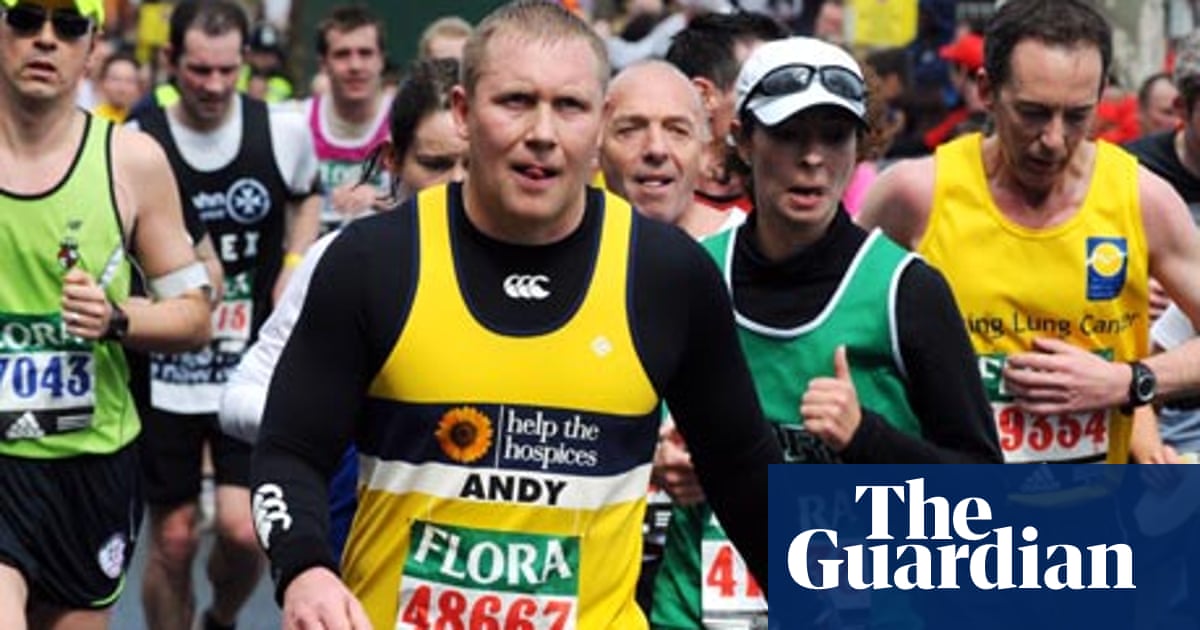How Does Running a Marathon for Charity Work
Running a marathon for charity works by participants raising funds through pledges and donations from supporters. They take part in the marathon, promoting the charity and gathering contributions to support its cause.
This act of endurance not only raises funds but also creates awareness for the charity. Many runners find it personally rewarding and meaningful to run for a cause they believe in. Running a marathon for charity offers a unique opportunity to make a difference in the community and support a cause that holds personal significance.
Through the process of training, fundraising, and ultimately completing the marathon, participants help to make a tangible impact on the lives of those in need. This endeavor not only showcases the individual’s dedication and perseverance but also serves as a powerful way to give back to the community.

Credit: www.marathon.tokyo
Getting Started
Running a marathon for charity is a fulfilling experience that allows you to make a difference while accomplishing a personal goal. Whether you’re an experienced runner or a novice, participating in a marathon for charity can be both rewarding and challenging. In this section, we will guide you through the initial steps to get started on this journey.
Choosing A Charity
One of the first decisions you need to make when running a marathon for charity is selecting the organization you want to support. Start by identifying causes that you are passionate about, such as education, healthcare, or environmental conservation. Research various charities that align with your interests and values.
Consider the following factors:
- Reputation: Look for well-established, reputable charities that have a track record of making a positive impact.
- Transparency: Check if the organization is transparent about how they use the donations they receive. Look for financial reports or annual statements.
- Connection: Choose a cause that resonates with you on a personal level. It will help you stay motivated throughout your marathon journey.
Once you’ve narrowed down your options, reach out to the charities you’re interested in and ask:
- How they distribute donations?
- What percentage of donations goes directly to the cause they support?
- If they provide any support or resources for marathon participants?
Setting Fundraising Goals
Setting clear and achievable fundraising goals is a crucial step in your marathon preparation. Your fundraising goal should be ambitious but realistic. Consider factors like your network, social media presence, and the time you can commit to raising funds.
Here’s how you can determine your fundraising goals:
| Target Amount | Donation Sources |
|---|---|
| $500 | Family, friends, and colleagues |
| $1000 | Local businesses and community organizations |
| $2500 | Online crowdfunding platforms |
- Divide your target amount into smaller, feasible milestones to track your progress.
- Consider hosting fundraising events, like bake sales or trivia nights, to engage your community and reach your goals together.
- Create a compelling fundraising page and share it on your social media platforms to attract potential donors.
Training For The Event
When it comes to running a marathon for charity, training for the event is essential to ensure that participants are physically and mentally prepared for the challenge ahead. Creating a training plan, building endurance and strength are key factors in preparing for the grueling 26.2-mile run. Let’s explore how participants can effectively train for a charity marathon.
Creating A Training Plan
Creating a training plan is the first step to preparing for a marathon for charity. It’s important to establish a consistent schedule that includes a mix of running, cross-training, and rest days. A well-structured plan should gradually increase the intensity and duration of runs to prevent injuries and improve performance. Participants should consider factors such as their current fitness level, time available for training, and any existing health conditions.
Building Endurance And Strength
Building endurance and strength is crucial for marathon preparation. Long-distance running gradually improves endurance, but incorporating strength training into the regimen is equally important. Activities such as weightlifting, core exercises, and yoga can help build overall strength and stability, reducing the risk of injury during training and the marathon itself.
Fundraising Strategies
Discover the impact of running a marathon for charity, fundraising strategies involve creating personal donation pages and leveraging social media to raise funds. Engage supporters through storytelling and provide regular updates to inspire donations and maximize contributions.
Utilizing Online Platforms
Online platforms have revolutionized the way charities raise funds for marathons. Utilizing social media, email campaigns, and dedicated fundraising websites can significantly expand outreach. These platforms allow participants to create personalized fundraising pages, share stories, and engage with potential donors globally.
Organizing Fundraising Events
Hosting events is a powerful way to attract contributors and garner community support. Organizing charity runs, bake sales, or silent auctions not only raises funds but also increases visibility for the cause. These events offer an opportunity for participants to engage with potential donors face-to-face, fostering meaningful connections and inspiring support.

Credit: donorbox.org
The Marathon Experience
Running a marathon is not just about the physical challenge; it’s also an opportunity to make a difference in the lives of others. The marathon experience goes beyond the race itself – it encompasses the preparation, support, and the impact you can have on a charity that is close to your heart. In this section, we will explore the various aspects of the marathon experience, including race day preparation and supporting your chosen charity.
Race Day Preparation
Preparing for a marathon requires dedication, commitment, and careful planning. Here are some key steps to help you effectively prepare for race day:
- Training: Develop a systematic training plan that gradually increases your mileage and endurance.
- Hydration and Nutrition: Stay well-hydrated before, during, and after your training runs. Focus on consuming a balanced diet rich in carbohydrates, proteins, and essential vitamins.
- Gear: Invest in proper running shoes, comfortable clothing, and other necessary gear to ensure a comfortable and injury-free race.
- Mental Preparation: Practice mental strategies such as visualization, positive self-talk, and goal-setting to maintain focus and motivation.
- Rest and Recovery: Incorporate rest days into your training schedule to allow your body to recover and prevent overuse injuries.
Supporting Your Charity
One of the unique aspects of running a marathon for charity is the opportunity to support a cause that is dear to your heart. Here are a few ways you can make a meaningful impact:
- Charity Selection: Choose a charity or organization that aligns with your values and has a mission you are passionate about.
- Fundraising: Create a personalized fundraising page and share it with your friends, family, and social network to gather support and donations.
- Sharing Your Journey: Document your training progress and marathon journey on social media to raise awareness for your charity and inspire others to contribute.
- Engaging with the Community: Attend charity events, connect with fellow runners, and participate in volunteer activities organized by your chosen charity.
- Thanking Your Supporters: Show gratitude to your donors and supporters by sending personalized thank-you notes or organizing a post-marathon celebration to recognize their contributions.
Remember, the marathon experience is not only about achieving a personal goal but also about doing something impactful for others. Take advantage of this opportunity to make a difference and enhance your race day experience.
Impact Of Charity Marathons
The impact of charity marathons extends far beyond just the physical act of running. These events have significant implications for community engagement and for raising both awareness and much-needed funds for various causes.
Community Engagement
Charity marathons foster a sense of community by bringing together individuals from diverse backgrounds to participate in a shared goal. Runners, volunteers, and supporters unite to make a difference, creating a strong network of like-minded individuals dedicated to a common cause.
Raising Awareness And Funds
Charity marathons serve as powerful platforms for raising awareness about important social issues and causes. By showcasing the dedication and hard work of participants, these events attract attention and inspire others to get involved, ultimately leading to increased support and funds for charitable organizations.

Credit: www.worldvision.org.uk
Frequently Asked Questions On How Does Running A Marathon For Charity Work
How Do You Organize A Marathon For Charity?
To organize a marathon for charity, follow these steps: 1. Determine a cause and choose a date and location. 2. Create a budget and secure sponsors and permits. 3. Set registration fees and promote the event through social media and local advertising.
4. Recruit volunteers and coordinate event logistics, such as course mapping and water stations. 5. Ensure participant safety, provide timing systems, and host a post-race celebration.
How Do You Get Paid To Run A Marathon?
You can get paid to run a marathon by participating in sponsored races or securing sponsorship from companies. Reach out to brands and businesses for financial support in exchange for advertising their products and services during the event.
How To Run Ny Marathon For Charity?
To run the NY marathon for charity, you can register with a charity partner and commit to fundraising. Create a fundraising page and reach out to friends, family, and colleagues for donations. Ensure you meet the fundraising requirements and enjoy the rewarding experience of running for a cause.
Conclusion
Running a marathon for charity involves individuals participating in a long-distance race to raise funds and awareness for a specific cause. By combining physical endurance with the spirit of giving, runners contribute to a meaningful cause while achieving personal goals.
The impact of these charitable marathons goes beyond the finish line, creating a sense of community, empowering individuals, and making a difference in the world. Get ready to lace up those running shoes and make a difference today!





